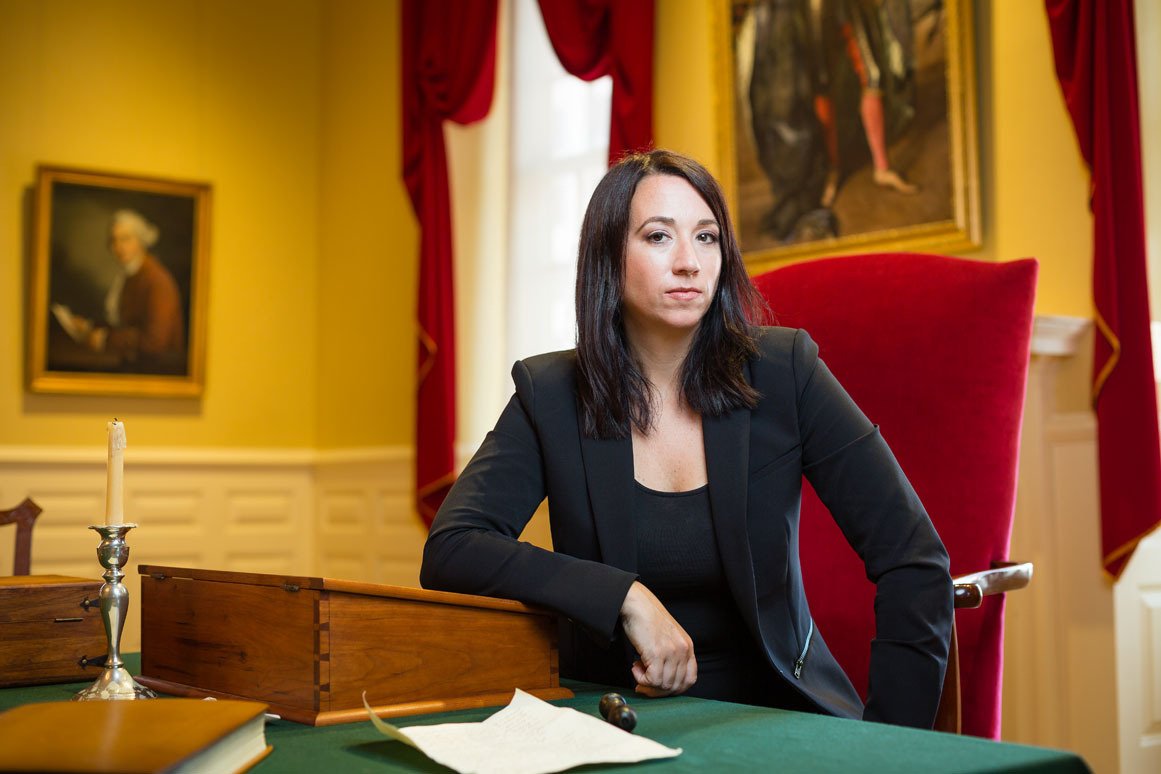It’s a historic cliché that money and politics are intertwined. In the eye of the public, politics is perceived as an exclusive game reserved for elite leaders with vast fortunes and power. It’s a career that’s out of reach for average Americans who more suitably represent our country’s collective values.
For Emily Cherniack, a longtime civil organizer and servant leader at AmeriCorps, these American platitudes stood in the way of servant leaders accessing political leadership. In 2009, Emily encountered these barriers up close when her boss Alan Khazei struggled during an unsuccessful U.S. senate run. The inevitable loss inspired Emily to reexamine the political process and strategize ways to help servant leaders get into office. Thus, New Politics was born.

New Politics is a first-of-its-kind organization that scouts and accepts applications for candidates who are characterized by their service work, or “servant leaders” as Emily calls them. Candidates include veterans and leaders who are passionate about our country but lack the traditional means to rise into political power. Emily curates her A-lists of servant leaders across the country and helps get them into office by aiding in campaign strategy, funding and organization.
Q: How did you first enter politics?
A: I was not political at all. My former boss, Alan Khazei, decided to run in the special election and said, “You’re coming with me on the campaign.” That was my first foray into politics. It was like swallowing the red pill in the Matrix. I dove headfirst into the political campaign world. Before that, I did the AmeriCorp program in Boston and worked with young people for years, while helping the teams of AmeriCorps work with at-risk youth in Boston. Then, this situation happened when my boss ran for U.S. senate, and it was a moment for me, someone who never thought about politics before, to see the barriers to entry that candidates face, and there are some pretty significant ones. It’s a counter-intuitive space, really, and we’re looking to change that by promoting civil servants with our organization.
What were some of the challenges of launching New Politics, and how did you overcome them?
When we launched in 2011, a lot of people thought I was crazy. A lot of people were like, “Don’t you want to get married and have kids first?” All those stereotypes were really challenging to come up against, especially at the time before there were social movements around women leadership. Nobody wanted to invest in us, so I started by recruiting one veteran to run for Congress. I do think women experience that a lot, where you’re asked constantly, “What about having kids, what about having a family?” Even though men have those same experiences they’re not asked about it…ever.

How does New Politics help identify potential candidates?
We legally are set up with a nonprofit arm, and a 527 which is a political nonprofit that allows us to get candidates. We’re involved in the full spectrum of a candidate’s life cycle: We help recruit, we help build their team and we help them with their strategy and messaging. We’re there for them every step of the way.
We look at three buckets: mission value alignment, candidate readiness and viability. We’re about transformational servant leaders. We look for those who have done significant service, whether its veteran or Peace Corp. Are they willing to do what it takes, do they have the time, focus and discipline?
Who are some of your proudest success stories?
Mikie Sherrill, who represents New Jersey’s 11th district. She went to the Naval Academy and was a helicopter pilot. She got elected in 2018, and I think will be a future senator or governor one day. Peter Meijer ran and got elected in Michigan and was one of the 10 Republicans to impeach Trump; he took a stand that was courageous against his party. Mike Gallagher in Wisconsin and Jason Crow in Colorado, the latter of whom was a Green Beret, are also two great points of pride for us.







